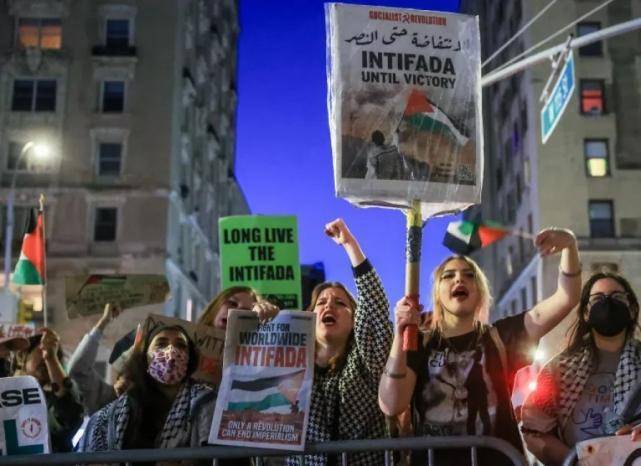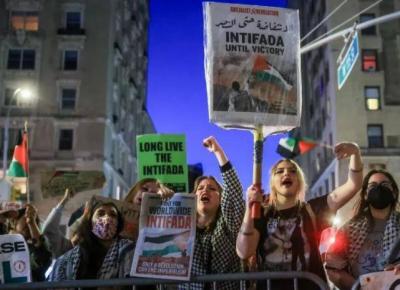Tensions at American universities escalated on Monday among students expressing solidarity with Palestinians amid the ongoing war between Israel and Hamas in Gaza. Protests began last week with the establishment of a "Gaza Solidarity Camp" on the Columbia University campus in New York City, later spreading to other institutions such as New York University (NYU), the Massachusetts Institute of Technology (MIT), and Yale, among others.
Participants in the protests at Columbia are calling for severing ties between the prestigious institution and Israel due to the ongoing war that has lasted more than six months, and the catastrophic humanitarian crisis it has caused. Universities have emerged as a primary arena for discussion and action in relation to the war, especially given the political and military support from the United States for Israel.
Activities supporting Palestinians at several universities, particularly prestigious ones such as Harvard and Columbia, have been met with warnings of rising anti-Semitic actions, especially since many major universities in the country primarily rely on financial support from Jewish organizations and donors.
Columbia University President Nemat Shafik ordered on Monday that classes be conducted online following disruptions experienced on campus, as protests expanded to other parts of the United States. In an open letter to the Columbia University community, Shafik emphasized the need to "resume" classes, stating, "In recent days, there have been numerous instances of intimidation and harassment on our campus." She added, "Anti-Semitic language, like any language used to harm and intimidate people, is unacceptable and appropriate actions will be taken. To de-escalate feelings of animosity and give us all a chance to think about the next steps, I announce that all classes will be conducted online on Monday."
"To Let Everyone Be Free" started their protest movement last week, urging the university to sever ties with companies linked to Israel and to cancel activities related to the Israeli state and Israeli academic institutions. More than a hundred protesters were arrested after university authorities called the police to the campus on Thursday, a move that seemed to escalate tensions and enticed a larger number of individuals to join the protests over the weekend.
Mimi Elias, a social work student who was previously arrested, told AFP on Monday, "We will remain in our place until they speak to us and listen to our demands." She added, "We do not want anti-Semitism or Islamophobia. We are here so that everyone can be free."
Joseph Hawley, a professor of classical studies at the university, stated that Columbia used the "wrong approach" by calling the police to its campus, which contributed to attracting more extreme elements that were not part of the student protests. The New York Times reported that protests also extended to the Massachusetts Institute of Technology and the University of Michigan, with at least 47 people arrested during a demonstration at Yale on Monday.




